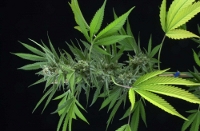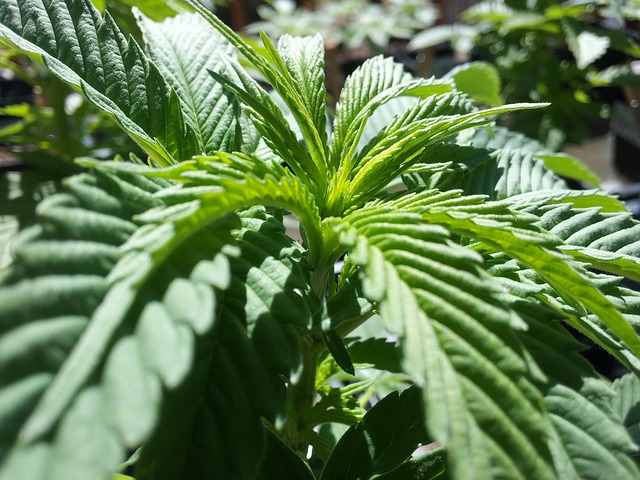Medical Marijuana - Part 2
You have reached Medical Marijuana Part 2. If you would liketo read Part 1, click here.
What are the Medical Uses for Marijuana?
In order to really comprehend the movement behind medical marijuana, you must first understand that this herb truly does show outstanding promise as a medicinal plant. The studies conducted so far show significant potential for the use of cannabis in the prevention and treatment of a wide range of health conditions, including cancer.
For instance, in 2009 a study in the journal Cancer Prevention Research found that marijuana smokers have a lower risk of head and neck cancers than non-marijuana smokers. Harvard researchers also found that THC in marijuana cuts tumor growth in lung cancer while significantly reducing its ability to spread. There is also a wealth of research linking marijuana with pain relief and improved sleep. In one recent study, just three puffs of marijuana a day for five days helped those with chronic nerve pain to relieve pain and sleep better.

Americans for Safe Access also has links to research studies suggesting that cannabis may help in the treatment or prevention of Alzheimer's disease and cancer, while the International Association for Cannabis as Medicine highlights the following medical uses:
- Nausea
- Vomiting
- Anorexia
- Cachexia (Wasting Syndrome)
- Spasticity
- Movement Disorders
- Pain
- Glaucoma
- Epilepsy
- Asthma
- Dependency and Withdrawal
- Psychiatric Symptoms
- Autoimmune Diseases
- Inflammation
- High Blood Pressure
- Chronic Fatigue Syndrome
Lastly, the research site - GreenMedInfo.com - lists over 126 potential therapeutic applications for marijuana in disease prevention and treatment, further illustrating just how voluminous the scientific evidence really is in support of the medical marijuana movement.
Your Body is Hard-Wired to Respond to Cannabinoids in the Marijuana Plant
There are more than 60 chemical compounds known as cannabinoids in the marijuana plant. Cannabinoids interact with your body by way of naturally occurring cannabinoid receptors embedded in cell membranes throughout your body. There are cannabinoid receptors in your brain, lungs, liver, kidneys, immune system and more; both the therapeutic and psychoactive properties of marijuana occur when a cannabinoid (such as the THC produced by the cannabis plant) activates a cannabinoid receptor.
Your body also has naturally occurring endocannabinoids that stimulate your cannabinoid receptors and produce a variety of important physiologic processes, far beyond that of the traditional "highs" associated with THC.

What is amazing is that your body is actually hard-wired to respond to cannabinoids through this unique cannabinoid receptor system; research is still ongoing on just how extensive their impact is on our health, but to date it's known that cannabinoid receptors play an important role in many body processes, including metabolic regulation, cravings, pain, anxiety, bone growth, and immune function.
A report by Dr. Manuel Guzman in the journal of Nature Reviews suggests that these active components of cannabis and their derivatives are potential anti-cancer agents:
- " … these compounds [cannabinoids] have been shown to inhibit the growth of tumour cells in culture and animal models by modulating key cell-signaling pathways. Cannabinoids are usually well tolerated, and do not produce the generalized toxic effects of conventional chemotherapies."
A report by the American College of Physicians (ACP) further notes that:
- "Marijuana has been smoked for its medicinal properties for centuries. It was in the U.S. Pharmacopoeia until 1942 when it was removed because federal legislation made the drug illegal …
Still, the overwhelming number of anecdotal reports on the therapeutic properties of marijuana sparks interest from scientists, health care providers, and patients.
Over the past 20 years, researchers have discovered cannabinoid receptors: CB1, which mediates the central nervous system (CNS), and CB2, which occurs outside the CNS and is believed to have anti-inflammatory and immunosuppressive activity.
These scientific developments have revealed much information supporting expansion of research into the potential therapeutic properties of marijuana and its cannabinoids."

Why Isn't Medical Marijuana Being Studied?
This is the burning question, as even a quick review of the data suggests that cannabis deserves more than a passing glance as a potential treatment for various diseases. But in the United States – primarily for political reasons -- these studies are not being performed.
According to a report by Americans for Safe Access:
- "In the past three decades, there has been an explosion of international studies designed to investigate the therapeutic value of cannabis (marijuana).
However, drastic restrictions on research in the U.S. have meant that few clinical trials are being conducted domestically and none are being conducted as part of a sponsor-funded drug development plan aimed at obtaining Food & Drug Administration (FDA) approval for the prescription use of the botanical plant itself.
Meanwhile, research teams in Great Britain, Spain, Italy, Israel, and elsewhere have confirmed - through case studies, basic research, pre-clinical, and preliminary clinical investigations - the medical value of cannabis … "
Of course, in the United States marijuana is so heavily controlled that even if you wanted to conduct a clinical trial, you would have a hard time getting a supply for research purposes. As the Safe Access report states:
- " … the federal monopoly on the supply of cannabis has fundamentally limited FDA-approved clinical research to investigate its safety and efficacy in controlling symptoms of serious and chronic illnesses.
In the United States, research is stalled, and in some cases blocked, by a complicated federal approval process, restricted access to research-grade cannabis, and the refusal of the Drug Enforcement Administration (DEA) to license private production of cannabis for use exclusively in federally approved research."
The DEA appears to be behind many puzzling restrictions concerning the marijuana plant, including the fact that it is even illegal to grow hemp in the United States.

Seattle Weekly speculates:
"Ignorance, false propaganda, and rank political posturing tend to be the foundation of the anti-marijuana argument. (Throw in bureaucratic turf protection as well. The DEA, for example, would need fewer agents if pot was decriminalized nationwide.)
"Many Americans Have an Open Mind About Legalizing Marijuana
A new Gallup poll found that a record high number of Americans -- 50 percent -- favor legalizing marijuana use, which suggests that public pressure will continue to build for a (pun-intended) grassroots legislative overhaul of U.S medical marijuana laws...
Of course, there are certainly some downsides to marijuana use that need to be addressed, particularly if you are thinking of smoking it for recreational purposes.
Marijuana use can be addictive, and no doubt resources have been squandered, families have been broken up and jobs lost over its use. In the short-term, marijuana use can cause trouble with your ability to think clearly and may impair memory. Marijuana also leads to motor skill impairment and may adversely affect alertness, coordination and reaction time, which is why it should never be used prior to driving.
There is also some evidence that marijuana use can exacerbate psychotic symptoms in those with schizophrenia or other psychotic disorders, as well as serve as a "gateway" drug that eventually leads to the use of "harder" drugs like cocaine and heroine, although this is still a matter of debate.
Marijuana use among children and teens can also have dire consequences, as drug use of any kind may encourage risky choices and irresponsible behaviors.
Furthermore, while the vast majority of marijuana use is through the act of smoking it, it is worth noting that anytime you heat materials and inhale them you run the risk of introducing toxic elements into your system. Because of this it is always best to use an organic version; any pesticides that are on the material that is burned and inhaled will dramatically increase its toxicity.
It is possible to avoid these risks entirely by either using cannabis in hemp oil form or, as many medical marijuana patients advocate, by using a vaporizer. The device allows for the ingestion of marijuana without any combustion byproducts, eliminating rightful concerns about the cumulative harms associated with smoking it. It is also possible to minimize harm by eating marijuana (along with some fat, as THC is fat-soluble and will not dissolve in water).
It is important to note that in the United States today using marijuana, (even medical marijuana), for any reason is still considered an illegal activity that can result in serious legal consequences, including imprisonment.
Sadly, it is not the scientific evidence -- but rather politics and an increasingly insatiable privatized industrial-prison complex in need of more drug-convicted "criminals" -- which maintains the stranglehold on our freedom to choose wild growing plants as our medicine rather than soley FDA-approved drugs.
I think Willie Nelson said it well in the following quote:
- I think people need to be educated to the fact that marijuana is not a drug. Marijuana is an herb and a flower. God put it here. If He put it here and He wants it to grow, what gives the government the right to say that God is wrong?
As stated earlier, at least half (50%) of Americans are in favor of legalizing medical marijuana. Many of those Americans have MS or some other condition that would benefit from being able to legally obtain this herb. So why not give them that chance?
And if you didn't get to watch it on Part 1, here's a video showing Montel Williams Medical Marijuana Dispensary in Sacramento, CA.
Go from Medical Marijuana Part 2 back to Part 1.
Go from Medical Marijuana back to Articles.
Dear Friends,
"Life in Spite of MS is a participant in the Amazon Services LLC Associates Program, an affiliate advertising program designed to provide a means for sites to earn advertising fees by advertising and linking to Amazon.com. We're also part of the Ebay Partner Network, another affiliate program."
We'd also like you to know it doesn't cost one cent more when you click through the links here on our blog. Not one single penny. And we will make a little extra cash when you do click through. We'll be ever so appreciative. You also have our word that we'll only link to things that we would use ourselves, (or wish we could have or use).
Sincerely,
Cir & Akrista
You are reading original content written by Akrista or Cir L'Bert of Life in Spite of MS. If you enjoyed reading this blog, please consider following us on Facebook, Twitter, Pinterest, and Instagram. See you there!
Privacy Policy ~ Advertising Policy ~ Disclaimer ~ Contact Us ~ About Us

New! Comments
Have your say about what you just read! Leave me a comment in the box below.